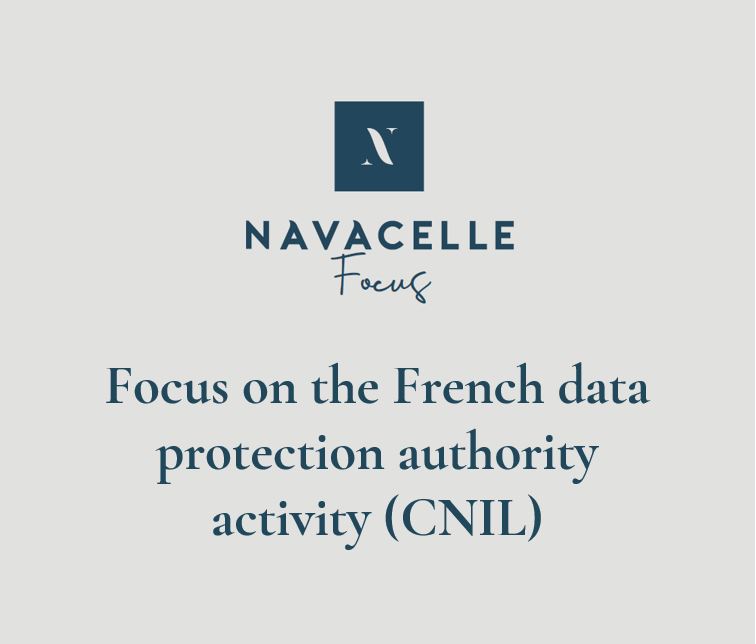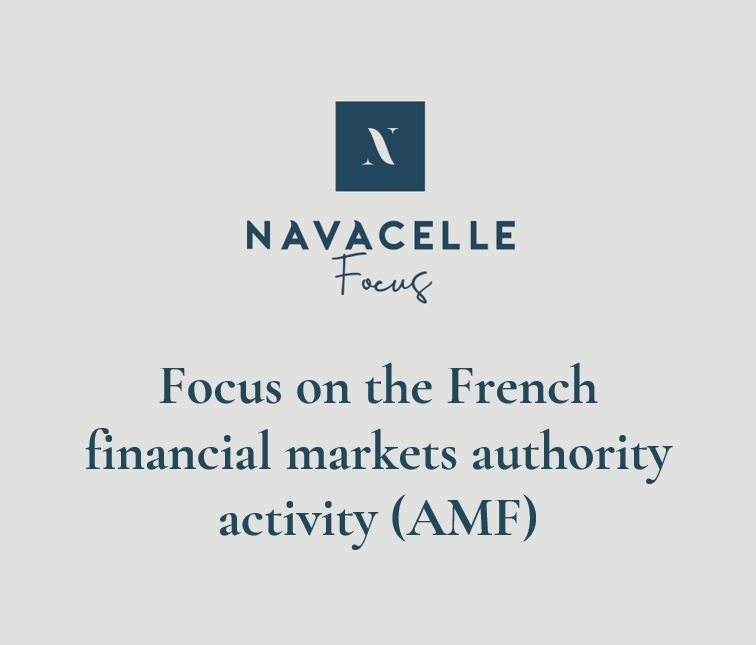In white collar crime, the last twelve months have been characterized by the authorities’ determination to intensify the prosecution of offences, in particular by strengthening investigations and imposing a greater number of sanctions. The year was also marked by a number of landmark rulings.
Among the rulings handed down, the focus will be on the generalization of the transfer of criminal liability from the absorbed company to the absorbing company to all corporate forms, the end of the two judicial sagas, the so-called Fillon affair and the so-called “Oil for Food” affair, and details of the moral prejudice suffered by the State in the event of tax laundering and the mandatory reporting requirement under article L.228 of the Tax Procedure Code (Livre des procédures fiscales) since the partial abolition of the tax authorities’ monopoly on filing criminal complaints.
The fight against tax, social security and customs fraud
In an initial report presented by the Ministry of the Economy in March 2024 on the fight against tax, social security and customs fraud, an all-time record was announced in terms of the volume of tax recovered. The Treasury recovered €15.2 billion, mainly due to a 25% increase in tax inspections of the assets of high-income individuals. The report also welcomes a new measure enabling tax judges to deny tax credits to tax evaders.
For more information on the issue: Report on the fight against tax, social security and customes fraud (in French)
The National Financial Prosecutor’s Office: 10 years of action against serious economic and financial crime
In its 2023 summary of activities, which also marks 10 years of action against serious economic and financial crime, the National Financial Prosecutor’s Office (“PNF”) and Prosecutor Jean-François Bohnert highlighted that in addition to the number of cases handled by the PNF (781 cases, 234 of which were closed), the use of innovative investigative strategies, including the use of media intelligence, the relocation of magistrates and investigators to the French Overseas Territories to ensure a better criminal response in these regions, and the internal handling of certain investigations with a strong legal dimension. These include the multiple searches carried out under the PNF’s direction in banking establishments in the so-called “Cum-Cum” cases of aggravated tax fraud laundering. He also points out that public interest judicial agreements (CJIP), created in 2016, are one of the best ways of both preventing and punishing financial crime within a company. Lastly, he points out that another favored tool is the plea of guilty (CRPC), which now allows sentences of more than 1 year to be handed down, and which is also possible in tax matters.
For more information on the issue:
- CJIP Observatory – key to understanding French DPA
- Parquet national financier: Summary of activities (in French)
Transfer of criminal liability from the absorbed company to the absorbing company
In judicial matters, the Criminal Division of the Court of Cassation, in a ruling dated 22 May 2024, confirms its new position since 25 November 2020 regarding the transfer of criminal liability from the absorbed company to the absorbing company and extends it to all corporate forms, and not just public limited companies, which were initially the only ones concerned. As a result, when a merger takes place after 25 November 2020, the criminal liability of the absorbed company is transferred to the absorbing company, regardless of the form of the company, and fines and confiscation can be imposed on the absorbing company – except, the sanctions of prohibition from awarding public contracts or practicing a professional activity. In the event of fraud, the Court states that the criminal liability of the absorbed company is transferred to the absorbing company, regardless of the date of the operation and without limitation on penalties.
Two court cases attracted a great deal of media attention as their outcome approached
Fillon saga
First of all, the Fillon saga involving fictitious employment has almost come to an end. Although the Court of Appeal has yet to rule on the sentence handed down to François Fillon, the ruling of the Court of Cassation on 24 April 2024 following the decision of the Constitutional Council signals the end of this procedural saga. In September 2023, the Constitutional Council had declared Article 385 of the Code of Criminal Procedure unconstitutional in that it prohibited an indicted person from raising a plea of nullity after the close of the investigation. The Criminal Division of the Court of Cassation, hearing the case again, held that the Court of Appeal had examined and dismissed the grounds of nullity raised by the former Prime Minister after the close of the investigation. As the litigant had not submitted the Court of Appeal’s reasoning on this point to the Court of Cassation for review, the Court of Cassation’s decision puts an end to the development of this argument of unconstitutionality.
For more information on the issue: Fillon saga: Procedural victory before the French Constitutional Council for the former prime minister in the fictitious employment scandal
Oil for Food
In its unanimous judgment of 12 October 2023, the European Court of Human Rights ruled that the convictions of Total and Vitol for bribery were not in violation of Article 7 of the European Convention on Human Rights. These convictions were related to corruption of foreign public officials in connection with the acceptance and organization of secret commission payments to Iraqi officials, in breach of the “Oil for Food” program set up by the UN in the 1990s. The companies had invoked this text, which prohibits conviction for an act that did not constitute an offence under national or international law at the time it was committed, arguing that it was impossible, at the time of the events, to anticipate that they would incur criminal liability for corruption. The Court’s rejection of this unforeseeability puts an end to this legal case.
The compulsory notification provided for in Article L.228 of the Tax Procedure Code
Lastly, in a number of rulings, the Cour de cassation has ruled on the framework of the compulsory notification provided for in Article L.228 of the Tax Procedure Code. The Court ruled that the failure to attach the tax assessment notice drawn up by the tax authorities to this notification did not constitute grounds for invalidating the procedure, provided that other procedural documents made it possible to verify compliance with the conditions for mandatory notification. In its ruling of 13 December 2023, the Criminal Division also made a number of clarifications, in particular pointing out that the conditions set out in European case law relating to the accumulation of criminal and tax penalties only applied to taxes falling within the jurisdiction of the European Union. It also pointed out that the non-material damage suffered by the State as a result of the laundering of tax fraud could not be distinguished from the damage to the public interest remedied by the public prosecution. Finally, on 23 May 2024, the Court stated that despite the spontaneous rectification of the existence of foreign bank accounts, the rejection of the rectification by the tax authorities made it possible to report the matter to the Public Prosecutor under Article L 228 of the Tax Procedure Code.
For more information on the issue:
- Procedural framework for automatic denunciations by French tax authorities
- New clarifications on the repression of tax fraud offences and tax fraud laundering by the Criminal Division of the Cour de Cassation
- Articulation of tax and criminal procedures: consequences of the corrective declaration on the obligation to report to the Public Prosecutor
Further rulings are expected in the area of criminal tax law, as the partial abolition of the tax authorities’ monopoly on filing criminal complaints will lead to an increase in this area of litigation. Similarly, the increase in penalties announced by the authorities should, on the one hand, result in more case law on technical points that have not yet been decided, and on the other hand, enable France to respond to the criticism levelled at it, regarding the effectiveness of its business criminal law legislation, particularly in the fight against corruption.







